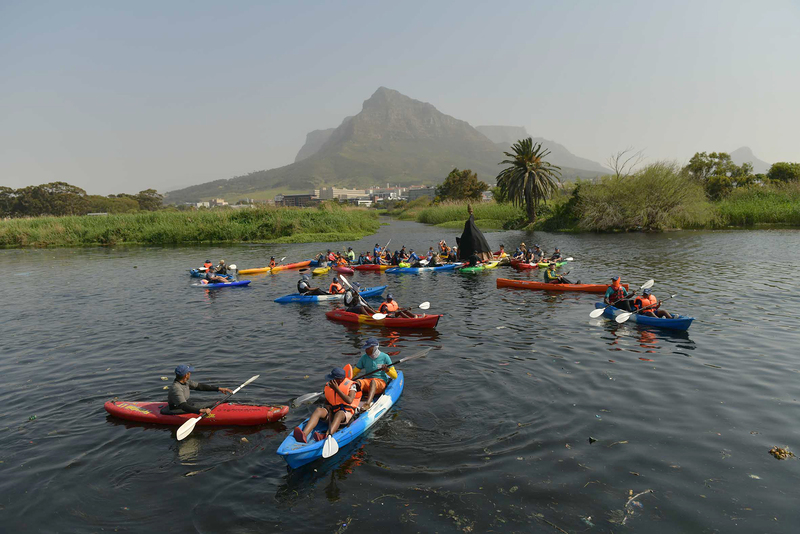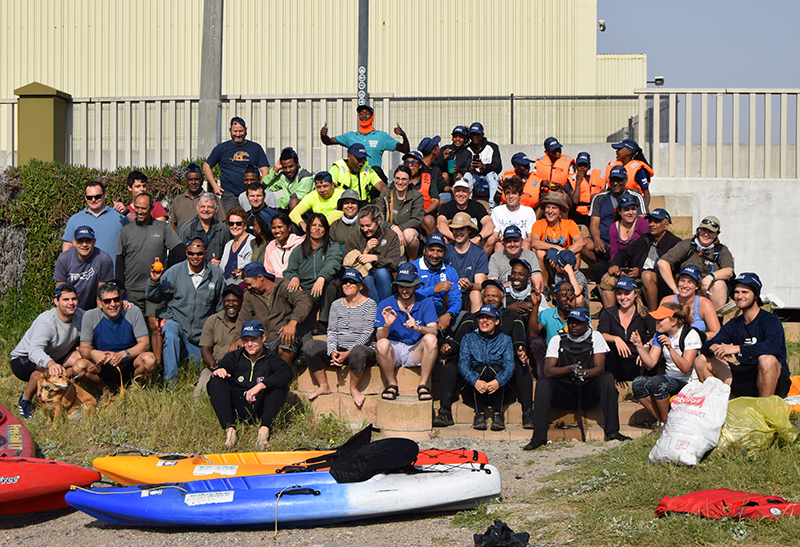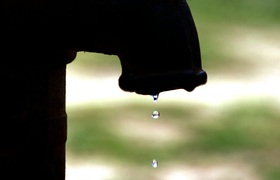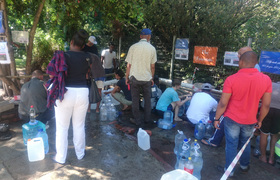Peninsula Paddle: journey of hope
16 September 2019 | Story Kevin Winter. Read time 5 min.
Last week, the 10th Peninsula Paddle, which aims to raise awareness about the state of Cape Town’s waterways, was a lot more challenging than in previous years. Sections of the waterways from Muizenberg to Paarden Eiland were littered with solid waste, dead domestic animals, fish, car parts, compact disks, broken electronic items, clothing and much more.
On Sunday, 8 September, over 60 paddlers from across the city, including members of the Khayelitsha Canoe Club and several other organisations, experienced close encounters with the waterways. While there was wonderful camaraderie that comes from undertaking a challenging adventure together, the paddlers were generally disappointed with what they saw. It’s clear that the waterways are being used as convenient dumping grounds for people to discard things that no longer hold value.
Compared with the first paddle event, a humble advocacy campaign, it looks like we have regressed. Perhaps we are seeing the implications of the City allocating its budget to roads, stormwater and catchment management for dealing with “Day Zero”. There are, of course, multiple causal factors: increasing urbanisation and densification, under-serviced residential areas, and limited options in accessing waste services, among others.
“It’s clear that the waterways are being used as convenient dumping grounds for people to discard things that no longer hold value.”
The paddle draws attention to the condition of Cape Town’s waterways and the living conditions alongside them, but it’s also a conversation and a journey. Two phrases that were coined in the first paddle in 2010 were again used to remind paddlers that “The health of the city is seen in its waterways” and that “We are all connected to the city’s waterways”.
However, this year’s paddle took on another theme: “Hope in a time of uncertainty”. The paddle followed a sad and painful week for the University of Cape Town (UCT) with the brutal murder of our student Uyinene Mrwetyana. The week will be remembered in expressions of protest, deep anger, a moving memorial service and a new resolve that enough is enough.
Since UCT’s Future Water Institute is a key partner in the organisation of the Peninsula Paddle, it was a tough place from which to start the event. At the breakfast stop soon after launching their crafts, the paddlers stopped to reflect on the loss of a young life and the unacceptable state of gender-based violence. How then do we find hope after all that has happened?
What we found in the waterways
Water quality samples were taken at 12 sites along the route and analysed in a UCT laboratory. E. coli bacteria were orders of magnitude higher in some parts of the journey compared with results obtained from earlier years. An analysis of the water quality provides a record of the condition on the day of the event and is also sent to the City’s Catchment, Stormwater and River Management Branch for further discussion and action. This year, the paddlers met a sea of plastic and water hyacinth that forced them to pull their crafts out of the water and traverse a section on the banks of the Black River. The scene was reminiscent of similar conditions that were encountered by the first paddlers in 2010. Despite the disappointment, the paddlers’ experiences brought about a much deeper conversation about a complex human problem and the harm that it is doing to the waterways and the receiving sea and shoreline.
The Lady of Hope
We reached a significant and poignant moment of reflection when we arrived at the statue on the Black River near Maitland. It is a beautifully crafted woman holding a baby in her arms and standing tall on a floating raft in the middle of the river. She is dubbed the Lady of Hope by the artist, aka the Riverman. The Lady of Hope was draped in a black cloth to make a bold statement about the tragic event of the previous week. The paddlers gathered around the raft and held onto each other while the story of the art piece was relayed and shared a moment to reflect on the pain of gender-based violence in our country.
“The Lady of Hope was draped in a black cloth to make a bold statement about the tragic event of the previous week.”
Building Hope
The Peninsula Paddle has become a journey of hope.
Over 300 people have participated in the paddle since it was first started. During this time many community-based groups have become actively involved in cleaning up rivers and beaches in the city. One of the lessons is that hope emerges when people learn to take responsibility for problems that we share and are affecting us deeply. This learning recognises different viewpoints, and values a diverse community of stakeholders who are able to work together on shared problems. Of course, it will take much more than a paddle event to improve the condition of the waterways.

Over the years the event has advanced the conversation and improved our collective and shared understanding about the environmental health and well-being of people living alongside the canals. Hope is a conversation that is built on a collective experience and is informed by new and transformed relationships from a diversity of committed citizens. Stories from members of the Khayelitsha Canoe Club about how they are addressing the problem of solid litter at the wetlands park give hope.
After a devastating week, we need to build hope together and gradually learn to act responsibly.
Read the related article on News 24.
 This work is licensed under a Creative Commons Attribution-NoDerivatives 4.0 International License.
This work is licensed under a Creative Commons Attribution-NoDerivatives 4.0 International License.
Please view the republishing articles page for more information.










